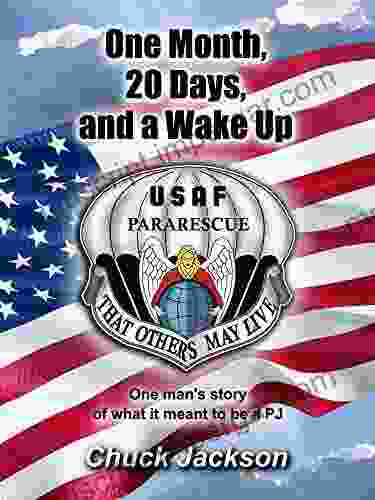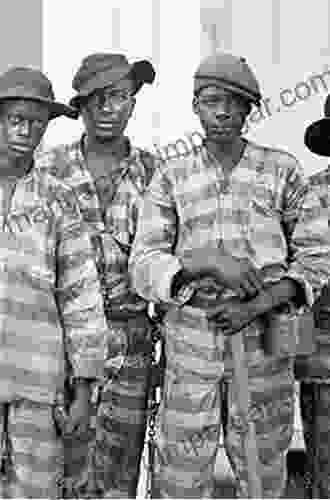How American Military Dominance Makes Us Less Safe, Less Prosperous, and Less Free

The United States spends more on its military than any other country in the world. In 2023, the U.S. is projected to spend $801 billion on its military, which is more than the next 10 countries combined. This spending is a major driver of the U.S. budget deficit, and it has a number of negative consequences for the country's security, economy, and civil liberties.
4.8 out of 5
| Language | : | English |
| File size | : | 523 KB |
| Text-to-Speech | : | Enabled |
| Screen Reader | : | Supported |
| Enhanced typesetting | : | Enabled |
| Word Wise | : | Enabled |
| Print length | : | 229 pages |
National Security
One of the main arguments for high military spending is that it is necessary to protect the United States from its enemies. However, there is little evidence to support this claim. In fact, a number of studies have shown that high military spending actually makes the United States less safe.
For example, a study by the Center for International Policy found that countries with high military spending are more likely to be involved in armed conflict. The study also found that high military spending is associated with a higher risk of terrorism.
Another study, by the Watson Institute of International and Public Affairs at Brown University, found that high military spending is associated with a higher risk of nuclear war.
These studies suggest that high military spending does not make the United States safer. In fact, it may actually make the country less safe.
Economy
High military spending also has a negative impact on the U.S. economy. The money that is spent on the military could be used to invest in other areas, such as education, healthcare, or infrastructure. These investments would lead to a stronger economy and a higher standard of living for all Americans.
For example, a study by the Center on Budget and Policy Priorities found that if the United States reduced its military spending by 10%, it could save $85 billion per year. This money could be used to fund a number of important programs, such as expanding access to healthcare, increasing funding for education, or reducing the budget deficit.
High military spending also leads to a more unequal distribution of wealth. The money that is spent on the military goes to a relatively small number of people, such as defense contractors and military personnel. This leaves less money for the rest of the population, which can lead to poverty and inequality.
Civil Liberties
High military spending also has a negative impact on civil liberties. The government uses the military to spy on its own citizens, suppress dissent, and undermine the rule of law.
For example, the National Security Agency (NSA) has been collecting data on the phone calls, emails, and internet activity of millions of Americans. This data collection is illegal and unconstitutional, and it has led to a loss of trust in the government.
The military has also been used to suppress dissent. For example, the military was used to quell the Occupy Wall Street protests in 2011. The military's use of force against peaceful protesters was a clear violation of the First Amendment.
High military spending also leads to a more militarized society. The military's presence in our schools, communities, and workplaces is a constant reminder of the power of the state. This militarization of society can lead to a loss of freedom and a decrease in civil liberties.
High military spending is a major problem for the United States. It makes us less safe, less prosperous, and less free. It is time for the United States to reduce its military spending and invest in a more just and equitable future.
4.8 out of 5
| Language | : | English |
| File size | : | 523 KB |
| Text-to-Speech | : | Enabled |
| Screen Reader | : | Supported |
| Enhanced typesetting | : | Enabled |
| Word Wise | : | Enabled |
| Print length | : | 229 pages |
Do you want to contribute by writing guest posts on this blog?
Please contact us and send us a resume of previous articles that you have written.
 Book
Book Novel
Novel Page
Page Chapter
Chapter Text
Text Story
Story Genre
Genre Reader
Reader Library
Library Paperback
Paperback E-book
E-book Magazine
Magazine Newspaper
Newspaper Paragraph
Paragraph Sentence
Sentence Bookmark
Bookmark Shelf
Shelf Glossary
Glossary Bibliography
Bibliography Foreword
Foreword Preface
Preface Synopsis
Synopsis Annotation
Annotation Footnote
Footnote Manuscript
Manuscript Scroll
Scroll Codex
Codex Tome
Tome Bestseller
Bestseller Classics
Classics Library card
Library card Narrative
Narrative Biography
Biography Autobiography
Autobiography Memoir
Memoir Reference
Reference Encyclopedia
Encyclopedia William Beausay
William Beausay Toni D Smith
Toni D Smith Chris Sandel
Chris Sandel Christopher Pavsek
Christopher Pavsek Jennifer Busch
Jennifer Busch Charles G Davis
Charles G Davis Charlotte Dennis
Charlotte Dennis Philip D Beidler
Philip D Beidler Charlie Lambert
Charlie Lambert Chris Sands
Chris Sands Steven K Baum
Steven K Baum Don Mann
Don Mann Christopher Andersen
Christopher Andersen Christopher H Sterling
Christopher H Sterling Julie Houston
Julie Houston Chester Croker
Chester Croker Christoph Lee
Christoph Lee Teas Exam Secrets Test Prep Team
Teas Exam Secrets Test Prep Team Jonathan Waldman
Jonathan Waldman Christopher J Barrow
Christopher J Barrow
Light bulbAdvertise smarter! Our strategic ad space ensures maximum exposure. Reserve your spot today!

 Quentin PowellWitness the American Revolution Through the Lens of Contemporary Newspapers...
Quentin PowellWitness the American Revolution Through the Lens of Contemporary Newspapers... Shawn ReedFollow ·3.5k
Shawn ReedFollow ·3.5k Wayne CarterFollow ·14.6k
Wayne CarterFollow ·14.6k Stanley BellFollow ·2.4k
Stanley BellFollow ·2.4k Joseph HellerFollow ·18.3k
Joseph HellerFollow ·18.3k Nathaniel PowellFollow ·5.1k
Nathaniel PowellFollow ·5.1k Ken FollettFollow ·14.2k
Ken FollettFollow ·14.2k Fred FosterFollow ·10.6k
Fred FosterFollow ·10.6k Clarence BrooksFollow ·9.4k
Clarence BrooksFollow ·9.4k

 E.E. Cummings
E.E. CummingsOne Man's Story of What It Meant to be Pj
In the tapestry of life,...

 Caleb Long
Caleb LongPattern Theory in Video Keno: Unveiling the Art of...
Embark on an enlightening journey into the...

 Douglas Adams
Douglas AdamsUnveiling the Diplomatic Landscape: The Ottoman Empire,...
Delving into the History...

 Terry Bell
Terry BellThere Still Is No Off Season: Embracing Year-Round...
In a world consumed by routine and the allure...

 Ibrahim Blair
Ibrahim BlairBrain Teasers Games and Puzzles: Exercise Your Mind with...
Prepare to embark on a captivating journey...
4.8 out of 5
| Language | : | English |
| File size | : | 523 KB |
| Text-to-Speech | : | Enabled |
| Screen Reader | : | Supported |
| Enhanced typesetting | : | Enabled |
| Word Wise | : | Enabled |
| Print length | : | 229 pages |












